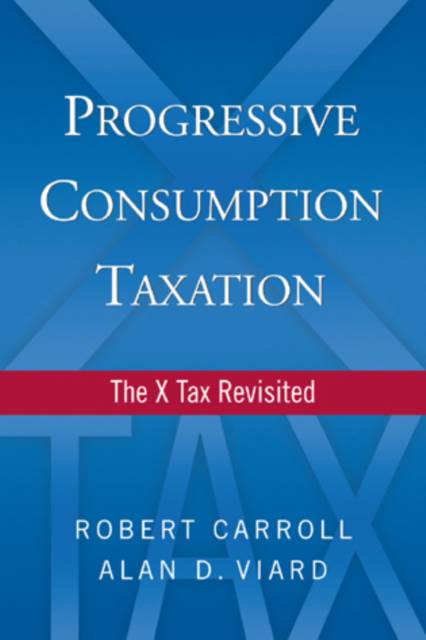
- Afhalen na 1 uur in een winkel met voorraad
- Gratis thuislevering in België vanaf € 30
- Ruim aanbod met 7 miljoen producten
- Afhalen na 1 uur in een winkel met voorraad
- Gratis thuislevering in België vanaf € 30
- Ruim aanbod met 7 miljoen producten
Zoeken
Progressive Consumption Taxation
The X Tax Revisited
Alan D Viard, Robert Carroll
Hardcover | Engels
€ 89,45
+ 178 punten
Omschrijving
Alone among developed countries, the United States has no broad-based national consumption tax. Yet, economic analysis suggests that consumption taxation is superior to income taxation because it does not penalize saving and investment. The authors conclude that the U.S. income tax system should be completely replaced by a progressive consumption tax. The authors argue that the X tax, developed by the late David Bradford, offers the best form of progressive consumption taxation for the United States. To achieve progressively, the X tax modifies the value added tax by splitting its consumption tax base into two components, wages and business cash flow. The X tax applies graduated tax rates to households' wages and applies a flat tax rate, equal to the highest wage tax rate, to business firms' cash flows. The authors outline concrete proposals for the X tax's treatment of pensions and fringe benefits, business firms, financial intermediaries, international transactions, owner-occupied housing, state and local governments, the transition, and other issues. By adopting the X tax, the United States can preserve tax progressively while promoting economic growth through the removal of tax penalties on saving and investment.
Specificaties
Betrokkenen
- Auteur(s):
- Uitgeverij:
Inhoud
- Aantal bladzijden:
- 222
- Taal:
- Engels
Eigenschappen
- Productcode (EAN):
- 9780844743943
- Verschijningsdatum:
- 11/05/2012
- Uitvoering:
- Hardcover
- Formaat:
- Genaaid
- Afmetingen:
- 152 mm x 231 mm
- Gewicht:
- 453 g

Alleen bij Standaard Boekhandel
+ 178 punten op je klantenkaart van Standaard Boekhandel
Beoordelingen
We publiceren alleen reviews die voldoen aan de voorwaarden voor reviews. Bekijk onze voorwaarden voor reviews.











